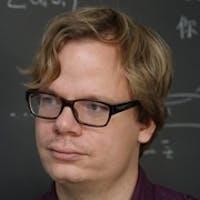Master CS foundations: sets{∪,∩}, functions(x→y), combinatorics{nPr,nCr}, graphs[V,E] - core computing building blocks
Master CS foundations: sets{∪,∩}, functions(x→y), combinatorics{nPr,nCr}, graphs[V,E] - core computing building blocks
This course provides a comprehensive introduction to discrete mathematics, forming the mathematical foundation of computer and information science. Students will explore a broad range of mathematical objects including sets, functions, relations, and graphs that are omnipresent in computer science. The course aims to develop mathematical maturity, enabling students to understand formal statements, create rigorous proofs, and derive interesting results. Key topics include enumerative combinatorics, graph theory, network flow, and matchings. The curriculum balances rigor with practical applications, offering proofs of non-trivial results without excessive formality. Through a mix of video lectures, assignments, and peer reviews, students will gain a deep understanding of discrete mathematics and its applications in computer science.
3.3
(188 ratings)
53,644 already enrolled
Instructors:
English
پښتو, বাংলা, اردو, 3 more
What you'll learn
Understand fundamental concepts of sets, functions, and relations
Master enumerative combinatorics and counting techniques
Apply the binomial coefficient and Pascal's triangle in problem-solving
Grasp the basics of graph theory and its applications
Understand connectivity, trees, and cycles in graphs
Explore Eulerian and Hamiltonian cycles
Skills you'll gain
This course includes:
5.93 Hours PreRecorded video
10 assignments, multiple peer-graded assignments
Access on Mobile, Tablet, Desktop
FullTime access
Shareable certificate
Closed caption
Get a Completion Certificate
Share your certificate with prospective employers and your professional network on LinkedIn.
Created by
Provided by

Top companies offer this course to their employees
Top companies provide this course to enhance their employees' skills, ensuring they excel in handling complex projects and drive organizational success.





There are 11 modules in this course
This course provides a comprehensive introduction to discrete mathematics, covering fundamental concepts crucial for computer science and information technology. The curriculum is divided into 11 modules, starting with basic objects like sets, relations, and functions, and progressing to more complex topics such as graph theory, network flow, and matchings. Key areas of focus include enumerative combinatorics, partial orders, the binomial coefficient, and various aspects of graph theory including connectivity, Eulerian and Hamiltonian cycles, and spanning trees. The course also covers important theorems such as Hall's Theorem, König's Theorem, and Dilworth's Theorem. Each module includes video lectures, assignments, and peer reviews, emphasizing both theoretical understanding and practical problem-solving skills.
Introduction - Basic Objects in Discrete Mathematics
Module 1 · 4 Hours to complete
Partial Orders
Module 2 · 4 Hours to complete
Enumerative Combinatorics
Module 3 · 4 Hours to complete
The Binomial Coefficient
Module 4 · 4 Hours to complete
Asymptotics and the O-Notation
Module 5 · 4 Hours to complete
Introduction to Graph Theory
Module 6 · 4 Hours to complete
Connectivity, Trees, Cycles
Module 7 · 3 Hours to complete
Eulerian and Hamiltonian Cycles
Module 8 · 2 Hours to complete
Spanning Trees
Module 9 · 3 Hours to complete
Maximum flow and minimum cut
Module 10 · 1 Hours to complete
Matchings in Bipartite Graphs
Module 11 · 1 Hours to complete
Fee Structure
Payment options
Financial Aid
Instructor
Theoretical Computer Science Expert and Algorithm Specialist
Dominik Scheder serves as an Assistant Professor in the Department of Computer Science and Engineering at Shanghai Jiaotong University, where he specializes in theoretical computer science. His research portfolio focuses on three main areas: algorithms for satisfiability, Boolean functions, and communication complexity. His teaching responsibilities include undergraduate courses in discrete mathematics and algorithm design, where he helps students develop strong foundations in computational theory. His work contributes to the advancement of fundamental computer science concepts, particularly in the areas of algorithmic problem-solving and mathematical logic. At Shanghai Jiaotong University, he plays a key role in shaping the computer science curriculum, bringing his expertise in theoretical computer science to prepare students for advanced computational challenges. His research and teaching combine to advance understanding of complex algorithmic problems and their practical applications in computer science
Testimonials
Testimonials and success stories are a testament to the quality of this program and its impact on your career and learning journey. Be the first to help others make an informed decision by sharing your review of the course.
Frequently asked questions
Below are some of the most commonly asked questions about this course. We aim to provide clear and concise answers to help you better understand the course content, structure, and any other relevant information. If you have any additional questions or if your question is not listed here, please don't hesitate to reach out to our support team for further assistance.



